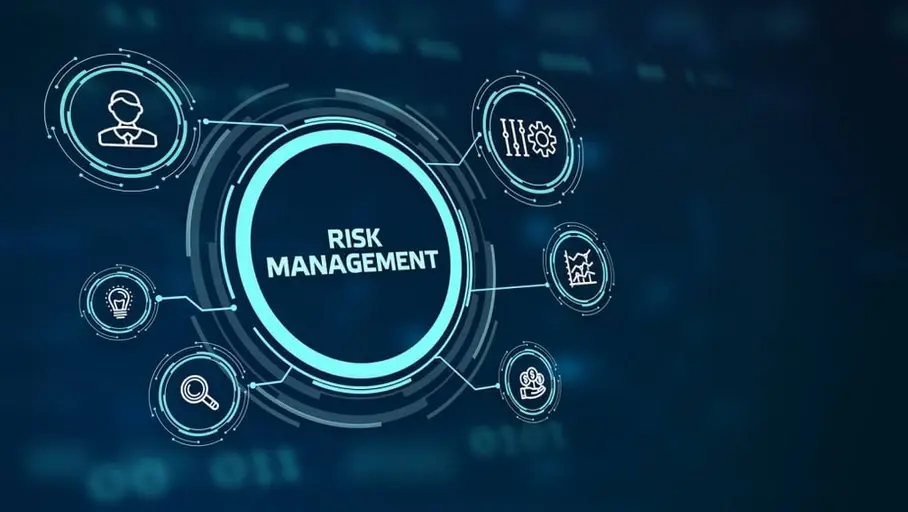
Global Complex Supply Chains
In today’s interconnected and complex global business landscape, supply chains have grown increasingly complex. The COVID-19 pandemic laid bare the vulnerability of these global supply networks, leaving many businesses grappling with the resulting disruptions. From natural disaster and geopolitical tensions, to shifting consumer preferences and regulatory demands, companies now confront a rising array of risks that can disrupt their operations and impact their financial performance.
To address these challenges and enhance resilience, more and more companies are embracing ESG factors as a template for supply chain due diligence. In this blog we will dig into the advantages of using the ESG framework as a due diligence tool, essential factors for implementing an effective program, and real-world instances of companies leading the charge in responsible supply chain management.
The Importance of ESG Due Diligence in Supply Chain Management
ESG due diligence is a critical process for evaluating suppliers based on their performance in these key areas. By integrating ESG factors into supply chain management, businesses can achieve several important objectives:
-
Risk Identification and Opportunity Assessment: ESG due diligence allows companies to identify potential risks and opportunities associated with their suppliers. By assessing environmental impact, social practices, and governance structures, organisations gain insights that inform strategic decisions.
-
Transparency and Accountability: Transparency is essential for responsible business practices. ESG due diligence promotes transparency by encouraging suppliers to disclose relevant information. This transparency, in turn, fosters accountability and builds trust between companies and their stakeholders.
-
Positive Environmental and Social Outcomes: When companies prioritise ESG considerations, they contribute to positive environmental and social outcomes. For instance, sustainable sourcing practices can reduce ecological harm, while fair labour practices benefit local communities.
Why ESG Due Diligence Matters:
-
High-Risk Industries: Certain sectors, such as mining, oil and gas, and agriculture, have a significant impact on the environment and local communities. In these industries, effective ESG due diligence is crucial to mitigate risks. Failure to manage ESG risks can lead to reputational damage, legal liabilities, and financial losses.
-
Demonstrating Commitment: Implementing ESG due diligence demonstrates a company’s commitment to responsible business practices. It shows that the organisation takes its social and environmental responsibilities seriously.
-
Supplier Relationships and Brand Reputation: Companies that prioritise ESG factors strengthen their relationships with suppliers. Suppliers appreciate working with partners who share their values. Additionally, a strong ESG track record enhances brand reputation and attracts socially conscious consumers.
While ESG due diligence offers significant benefits, it also presents challenges:
-
Complexity: Effective ESG due diligence requires a deep understanding of the company’s supply chain. It involves collecting and analysing substantial amounts of data related to environmental impact, labour practices, and governance structures.
-
Data Collection and Analysis: Gathering reliable ESG data can be challenging. Companies must navigate diverse sources, assess data quality, and interpret complex metrics.
Risks and Challenges in Supply Chain Management
Managing a global supply chain is a multifaceted and dynamic process involving various stakeholders- suppliers, customers, and regulators. Supply chain risks stem from diverse sources: natural disasters, political instability, labour disputes, and cyber-attacks. These risks significantly impact a company’s operations, reputation, and financial performance.
Challenges in Global Supply Chain Management:
-
Visibility and Transparency Gap: Many companies lack visibility into the lower tiers of their supply chain. This hinders risk identification and mitigation. Cultural and language barriers further complicate communication with suppliers across different countries and regions.
-
Navigating Regulatory Complexity: Companies must comply with a myriad of laws and regulations, including environmental standards, labour laws, and anti-corruption measures. Non-compliance can lead to legal consequences, fines, and damage to reputation.
-
Dynamic Risks and Adaptability: Supply chain risks evolve continuously. Companies must proactively manage risks and swiftly respond to emerging threats. Real-time data monitoring and analysis are essential for effective risk management.
ESG Factors to Consider in Due Diligence
When conducting due diligence, companies should consider the following ESG factors:
-
Environmental Performance: Assess energy efficiency, carbon emissions, water management, and waste reduction practices. Companies committed to sustainability prioritize environmentally responsible actions.
-
Social Performance: Evaluate labor practices, health and safety standards, human rights protection, and community engagement efforts. Socially responsible suppliers contribute positively to their communities.
-
Governance Performance: Scrutinize board composition, executive compensation structures, anti-corruption policies, and risk management practices. Strong governance ensures ethical decision-making and transparency.
Strategies for Integrating ESG into Supply Chain Management
To effectively integrate ESG into supply chain management, companies should adopt a strategic and systematic approach. Here are key strategies:
-
Develop a Clear ESG Policy: Companies should create a well-defined ESG policy that outlines their expectations for suppliers. Communicate this policy to all suppliers and incorporate it into contracts and agreements.
-
Conduct ESG Due Diligence: Regularly assess suppliers’ ESG practices through due diligence. Use the insights gained to inform decision-making within the supply chain. Integrate ESG due diligence into the overall risk management process.
-
Engage with Suppliers: Collaborate with suppliers to address ESG issues. Share best practices, provide training, and build capacity. Set targets and performance metrics to drive positive ESG outcomes.
-
Monitor and Report on ESG Performance: Continuously monitor suppliers’ ESG performance. Use data to identify areas for improvement. Set measurable targets and provide feedback and support to suppliers.
Tools and Frameworks for ESG Due Diligence
Companies have access to various tools and frameworks for conducting ESG due diligence within their supply chains. These resources assist in collecting data, identifying risks and opportunities, and monitoring ESG performance.
Here are some commonly used tools:
-
Supplier Questionnaires and Assessments: Customisable tools that allow companies to gather information directly from suppliers. Assess suppliers’ ESG performance, identify potential risks, and uncover opportunities.
-
ESG Ratings and Rankings: Quantitative assessments of suppliers’ ESG practices. Criteria include environmental performance, social responsibility, and governance effectiveness. Although there are many different standards at the moment, legislation is moving fast in the UK and EU to standardise and regulate these ratings.
-
Certification Schemes: Independent verification of suppliers’ ESG performance. Demonstrates compliance with specific standards (e.g., Forest Stewardship Council, Roundtable on Sustainable Palm Oil).
-
Industry-Specific Tools and Frameworks: Tailored to unique ESG risks and opportunities within specific sectors. A really good example of an industry specific framework is the Sustainable Apparel Coalition (SAC) for the apparel industry.
While tools and frameworks can be helpful, it’s important to remember that they are only part of the solution. Companies must also develop a deep understanding of their supply chain, engage with suppliers on ESG issues, and monitor and report on ESG performance. In the next section, we’ll discuss some real-world examples of companies that are leading the way in responsible supply chain management.
Case Studies of Successful ESG Due Diligence in Supply Chain Management
There are many companies that are leading the way in responsible supply chain management. These companies have implemented effective ESG due diligence programs, and are using their supply chains to drive positive environmental and social outcomes. Here are a two high profile examples examples:

IKEA has been a pioneer in integrating sustainability throughout its value chain. Here are key highlights:
Reducing Climate Footprint:
-
In their FY22 Sustainability Report, IKEA reported a remarkable 25.8 million-tonne reduction in their climate footprint compared to their FY21 baseline. This achievement was driven by advancements in renewable electricity and improved product efficiency.
-
Holistic Approach: IKEA’s sustainability efforts span sourcing raw materials, manufacturing, transportation, and consumer well-being. They emphasise safety, quality, diversity, and inclusion while maintaining an ethical and efficient supply chain.

Mission-Driven Sustainability: Patagonia’s mission statement, “We’re in business to save our home planet,” reflects its core values of quality, integrity, environmentalism, justice, and nonconformity. Key points include:
-
Environmental Responsibility: Patagonia tackles its environmental footprint head-on. They have developed a sustainable supply chain, working closely with suppliers to meet strict environmental and social standards.
-
Ownership Transfer: In 2022, Patagonia’s founder, Yvon Chouinard, and his family transferred ownership to the newly created Patagonia Purpose Trust and the not-for-profit organization, Holdfast Collective. These entities ensure that all profits go toward combating climate change and protecting underdeveloped land globally.
-
Quality and Ethics: Patagonia’s culture revolves around building the best products while causing the least harm. Employees find fulfilment in independence and are obsessed with quality, whether in a shirt or a store display.
These companies demonstrate that ESG due diligence can be a powerful tool for managing supply chain risks and driving positive environmental and social outcomes.
The Role of Technology in Supply Chain Due Diligence
While technology can be a powerful tool for Supply Chain due diligence, it’s important to remember that it’s only part of the solution. Companies must also develop a deep understanding of their supply chain, engage with suppliers on ESG issues, and monitor and report on ESG performance. In the next section, we’ll discuss how ESG due diligence can help companies to build resilience.
Various technological solutions empower companies to collect, analyse, and act on ESG-related data. Here are some commonly used tools:
-
Supply Chain Mapping Tools: These tools enable companies to map their intricate supply chains and visualise relationships between suppliers. By doing so, companies can identify potential risks and opportunities, allowing them to tailor targeted ESG due diligence programs. For instance, understanding the origin of raw materials and the network of suppliers helps uncover hidden risks related to labour practices, environmental impact, or human rights violations.
-
Big Data Analytics: Big data analytics allows real-time collection and analysis of vast amounts of data related to suppliers’ ESG performance. Companies can identify trends, patterns, and outliers, leading to informed decision-making.
-
Blockchain Technology: Blockchain creates secure and transparent records of suppliers’ ESG performance. By immutably recording data, companies enhance transparency, accountability, and compliance with regulations. For example, blockchain can verify the authenticity of sustainable sourcing claims or fair labour practices.
-
Artificial Intelligence (AI): AI analyses suppliers’ ESG data, identifying risks and opportunities. Machine learning algorithms can predict potential issues, allowing companies to take proactive measures. Informed supply chain decisions driven by AI contribute to positive environmental and social outcomes.
Technology alone is not the complete solution. Companies must complement technological tools with other essential practices:
-
Deep Understanding: Develop an in-depth understanding of the supply chain, including its intricacies and vulnerabilities.
-
Supplier Engagement: Actively engage with suppliers on ESG matters, fostering collaboration and shared responsibility.
-
Monitoring and Reporting: Continuously monitor and transparently report on ESG performance to build resilience.
Building Resilience through ESG Due Diligence
ESG due diligence can help companies to build resilience by identifying potential risks and opportunities, improving transparency and accountability, and driving positive environmental and social outcomes. By integrating ESG into supply chain management, companies can develop a deep understanding of their supply chain, and can make informed decisions about their suppliers. This can help to mitigate risks and ensure compliance with laws and regulations.
In addition, ESG due diligence can help companies to improve their relationships with suppliers, and to drive continuous improvement in ESG performance. This can help to build resilience by ensuring that the supply chain is able to adapt and respond to new threats.
Finally, ESG due diligence can help companies to enhance their brand reputation by demonstrating their commitment to responsible business practices. This can help to build resilience by increasing customer loyalty and enhancing the company’s competitive advantage.
Conclusion
In summary, ESG due diligence is a critical component of sustainable business practices in our interconnected world. By rigorously assessing suppliers’ ESG performance, companies can uncover risks, seize opportunities, and foster transparency and accountability.
If you are interested in finding out more about how ESG due diligence helps in managing and de-risking your supply chain or if you would like help or advice then please get in touch- schedule a call, email us directly or chat now using the chat widget.


.png)